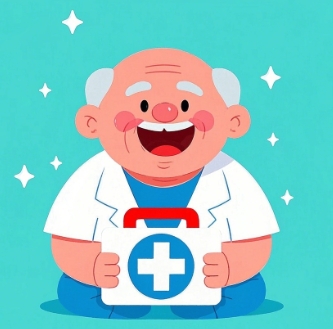First Aid Kits for Seniors Tailored to Specific Health Needs
Introduction
As people age, their health needs change, and having a first - aid kit specifically tailored to these needs becomes crucial. A senior - focused first - aid kit can be a lifesaver in various situations, from minor injuries to more serious health emergencies.
Components of a Senior - Oriented First - Aid Kit
Medications
1. Pain Relievers: Seniors often experience joint pain, muscle aches, or headaches. Over - the - counter pain relievers like acetaminophen or ibuprofen can provide relief. However, it's important to consult a doctor first, especially considering any pre - existing medical conditions or medications the senior may be taking.
2. Heart - Related Medications: For seniors with heart conditions, medications such as nitroglycerin should be included. This can help relieve chest pain in case of angina attacks.
3. Allergy Medications: Seniors may develop new allergies or have pre - existing ones. Antihistamines can be useful for allergic reactions, whether it's from food, medications, or environmental allergens.
Wound - Care Supplies
1. Bandages and Dressings: Different sizes of sterile bandages, adhesive bandages, and gauze dressings are essential. Seniors may be more prone to cuts and scrapes due to reduced skin elasticity and balance issues.
2. Antiseptic Wipes and Solutions: These help clean wounds and prevent infections. It's important to choose gentle antiseptic products suitable for sensitive senior skin.
3. Tweezers and Scissors: Sterile tweezers can be used to remove splinters or debris from wounds, and small, sharp scissors can help cut bandages or clothing if needed.
Mobility and Balance Aids
1. Walking Canes or Walkers: For seniors with mobility issues, a well - fitted walking cane or walker can prevent falls. These should be included in the first - aid kit if space allows, or at least information on how to obtain and use them properly.
2. Non - Slip Mats: Placing non - slip mats in the bathroom and other areas where falls are likely can significantly reduce the risk of injury. Information about using and maintaining these mats can be provided in the first - aid kit.

Special Considerations
Medical Information Card
Include a medical information card in the first - aid kit. This card should list the senior's medical conditions, current medications, allergies, and emergency contact information. In case of an emergency, this information can be crucial for healthcare providers.
Regular Checks and Updates
First - aid kits for seniors should be checked regularly. Medications have expiration dates, and supplies may run out. It's important to replace expired items and restock used supplies promptly. Additionally, as the senior's health changes, the contents of the first - aid kit may need to be adjusted accordingly.
Conclusion
A first - aid kit tailored to the specific health needs of seniors can greatly enhance their safety and well - being. By including the right medications, wound - care supplies, mobility aids, and ensuring proper maintenance, we can be better prepared to handle emergencies that may arise. It's a small step that can make a big difference in the lives of our senior loved ones.




